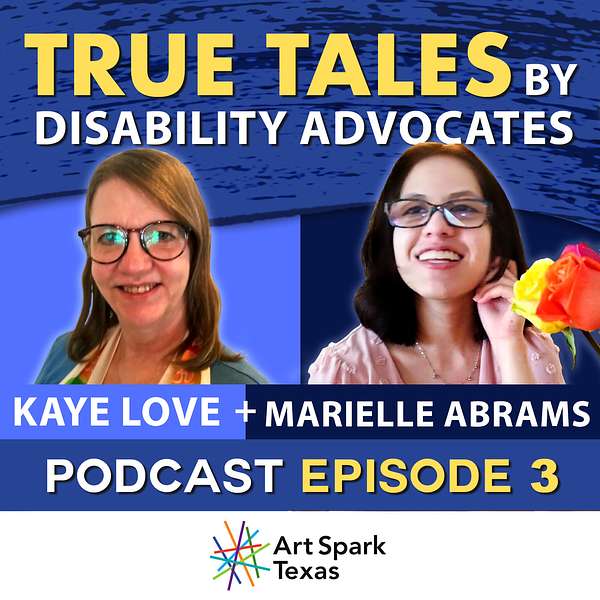
True Tales by Disability Advocates
Where advocates harness the power of storytelling to build community with their peers and hope to develop empathy in others. A team of disability advocates creates this True Tales podcast to share personal stories by disabled storytellers and add their voices to the growing community of podcast listeners.
True Tales by Disability Advocates
Community, Faith and Inclusion
Click Here To Listen With Full Transcript
In this episode, host Kamand Alaghehband talks to Kaye Love and Marielle Abrams, who talk about their journey with faith and inclusion and share their stories “Faith and Inclusion” and “Prom Night.”
Storyteller Bio
Kaye Love
Kaye is passionate about assisting individuals to explore and enhance their sense of meaning and purpose in life in a way that is sensitive to and respectful of their religious or non-religious understanding. She understands the challenges of developing an appreciation of a personal skill set that is unique, positive self-esteem, and creative workarounds for functional limitations, as well as the difficulties involved in navigating education, employment, healthcare, and community organizations designed for those with typicality. She is experienced with providing spiritually sensitive counseling to clients who identify with diverse belief systems.
Social Media:
Website: kayelove.com, LinkedIn: J. Kaye Love, MSSW/MBA, LPC, - Austin, Texas, United States | Professional Profile | LinkedIn, Schedule Counseling onThrive: Thriveworks Counseling - Janet Kaye Love, Acting: tiltperformance.org
Marielle Abrams
My name is Marielle. I am an artist and I’m a beginner blogger. I like to write and read mysteries and adult books. I love music, fashion, and Pickachu.
Social Media: Mari Waters World
Host
Kamand Alaghehband was born and raised in Austin, TX, and has autism. In 2020, The CDC reported approximately 1 in 54 children in the U.S. diagnosed with autism ratio is more than all cancer patients combined. Kamand has spent her life supporting all generations with disabilities. Kamand loves the Special Olympics and her favorite sports are swimming, basketball, and track. Kamand is a member of the executive committee of Special Olympics Athletes Leadership in Texas. I have created podcasts, Tik Tok videos, video games, and a variety of health activities during the pandemic to keep her mind occupied in a healthy way.
Kammand’s mission within her population is to bring peace today and create a vision for tomorrow’s disabled population. Kamand hopes that she’ll be able to teach others to turn denial into acceptance.
Music Credits
- Music by Scandinavianz from Pixabay
- Tropical by TimTaj from Pixabay.
- Stomp - Music by Muzaproduction from Pixabay
- Summer Walkaways by Muzaproduction from Pixabay
- Mexican Plaza by John Bartmann
- Classic piano link - Music by JuliusH from Pixabay
- Piano Magic Logo Music by Muzaproduction from Pixabay
For more details about our programs go to Art Spark Texas, True Tales Podcast Page.
Welcome to The True Tales by Disability Advocates. Authentic voices of people thriving with disabilities. Were individuals use the art of storytelling to change the world. True Tales by Disability Advocates podcast is produced by Art Spark Texas Speaking Advocates Program. Keep listening to hear how lives challenges can spark a desire to speak out and advocate for ourselves and others.
MsBoye:You're listening to episode three of The True Tales by Disability Advocates. A team of disability advocates creates True Tales to give voice to the personal stories and lived experience of disabled storytellers. We offer our unique and often underrepresented perspective to the growing community of podcast listeners worldwide. This episode of True Tales, titled"Community, Faith and Inclusion" investigates the meaning of inclusion. You'll hear how legal protections of the ADA, although important in terms of accessibility, fall short in terms of making us the inclusive community, we need to be. Everywhere these days, we see places promoting their commitments to diversity. Schools businesses, dance studios, even churches, which is great, but the truth is without an awareness of what it takes to be truly inclusive their disabled members won't feel that they belong. Our storytellers Kaye Love and Marielle Abrams bring us stories about the power of an inclusive community and the loss of a community that's not. The host of"Community, Faith and Inclusion" is Kamand Alaghehband. Kamand is from Austin and she has autism. She's participated in many Speaking Advocates trainings over the years and is a member of The True Tales, podcast working group. She is an athlete and she's also a member of the executive committee of Special Olympic Athletes Leadership in Texas. Our first storyteller, Kaye Love is a psychotherapist, who discovered the power of meditation and mindfulness to regulate her seizure disorder. How this spiritual practice runs through her life and her work is revealed in her story,"Faith and Inclusion." It is a call for awareness and action in all faith communities and a call to us in our daily lives. Marielle Abrams describes herself as an artist and a beginner blogger. In her story"Prom Night" a community comes together to make sure two friends can share the experience of their Prom with their peers. We believe that everyone's life is enriched by the inclusion of multiple voices and so we have been training storytellers for over 20 years. True Tales by Disability Advocates, harnesses, the power of storytelling to build community with peers and hopes to develop empathy in others. This episode is a wonderful example of our passion to include stories from folk across disabilities, and how they all count and what we all have in common. We are so glad you have chosen to take time out of your day to gain insight into the experience of these three very different women who are all committed to being inclusive and who are actively changing the world around them.
Kamand Alaghehband:Welcome to The True Tales by Disability Advocates, the podcast where we change the world one story at a time. I'm Kamand Alaghehband, and I'm your host. Our storytellers this week tell stories about their experiences with inclusion, faith, religion, and community. Our first storyteller is Kaye Love. Welcome Kaye, I'm so glad you could join us today.
Kaye Love:Hi, I'm so glad to be here with you and have this opportunity to tell my story.
Kamand Alaghehband:So Kaye, before you share your story, can you tell our listeners, how did you get started with the Opening Minds Opening Doors program? And what it was like to write and tell this story?
Kaye Love:Hi. Yes, and I was a member with the Actual Lives troop at VSA before they were Art Spark. And when Opening Minds Opening Doors started, it was after, uh, that Actual Lives troop had ended. I found Art Spark or VSA when I was seeking resources for child clients in my psychotherapy practice and did some volunteer work with children and was encouraged to participate. Then I saw a couple do an autobiographical sketch about finding, a child to adopt while they were using wheelchairs, it really inspired me to get up on stage and tell my story. And so having had that experience, I was excited to continue with OMOD after, after Actual Lives had ended. This story was exciting to write because it's the culmination of finding my sense of purpose and the purpose of my Ministry. And so I am very excited to, to share this with our audience.
Kamand Alaghehband:That's great. I can't wait to hear your story.
Kaye Love:I'm Kaye Love And this is my story Faith and Inclusion. What if, after years of being part of a beloved community, developing close, personal friendships, enjoying programming that nourished you by leading to a better understanding of yourself and provided meaningful opportunities for service, you woke up one morning and could no longer access all or part of that community? A congregation, I belonged to had moved to a new building. At previous events since churches are exempt from the Americans with Disabilities Act, I would call the church secretary and let her know that I wouldn't be bringing my own lights. Fluorescent lighting causes me to have confusion, anxiety, nausea, and can even trigger seizures. I arrived late to the class and decided that I would wear my blindfold until there was a break to allow me to set up my lights. A collection of lamps that I had, I kept in my trunk for such occasions. The next day I received a call from the Minister telling me how rude I was to expect them to change the lighting. I was told that I was disruptive to the class and had unrealistic expectations. Furthermore, that I had prevented the leader from having the accommodations he needed and that I should just wear my blindfold in the future. I should mention that the class was being taught by a man who had both a mobility impairment and a visual disability. His brother and sister were there assisting him. The brother insisted that we go ahead and set up my lighting at the beginning of the class that I was late to and I was very appreciative. I was devastated by what felt like rejection by my congregation and experienced a wrenching sense of loss. When I attempted to return, I ended up walking out in tears. I was no longer able to listen to the Minister's message of inclusion. Access to spiritual or religious communities has been shown to be an important part of wellbeing for those who participate. Many people develop skills in leadership, hospitality, and other forms of service within their faith communities. This can lead to helpful connections to community opportunities, such as employment and education. Service opportunities are an important component of developing self-worth and demonstrating competency. Theology that sees the disabled as a one- way service opportunity misses out on a much larger reward. It is sad that the most challenging place I have found to advocate for myself and for other people with disabilities has been my church. So if your congregation is important to you, you want to make sure it is there for you. If loving others through service is important, you want to make sure others can take advantage of the spiritual nourishment that your community provides. If assisting others in their personal spiritual transformation is important to you, then you want your community to ensure that those opportunities are accessible physically, mentally, emotionally, and spiritually, to all. It is not required by law, it is required by love.
Kamand Alaghehband:Welcome back. I'm here with Kaye. Kaye, thank you for sharing your story with us. I appreciate this story because it shows so clearly the importance of following your heart and staying true to yourself. Many people would have given up on their faith, but you continued to stay and advocate for yourself. Tell us about how this story inspired you to return to school and earn your third Master's Degree.
Kaye Love:Yes. After this experience of feeling excluded by my own congregation, it made me realize that pursuing my longtime desire to receive training in ministry would put me in a position to help other congregations with facilitating inclusion for people with disabilities. And I had been looking at seminary options for some time. I've been interested in Interfaith Ministry, but it had never been clear to me that the focus of my Ministry could be related to finding inclusion in faith communities. And I'm now an ordained Minister through the Interfaith Temple of New York after earning the degree of Master of Religious Studies in a program focused on Interfaith Ministry.
Kamand Alaghehband:Isn't it amazing how sometimes our most difficult experiences can give us the push we need to make big changes? In a way they make us brave and it can bring us the most incredible gifts.
Kaye Love:Absolutely! So, not only do I have my own experiences of disability to draw on, I've seen many people who have had experiences with disability that have led to amazing spiritual transformations, whether they were mobility, impairments or cancer or whatever, there's a lot of transformation involved in dealing with limitation.
Kamand Alaghehband:Exactly! So what is it you hope to accomplish in your ministry?
Kaye Love:Right now I'm in the process of developing a focus group or some, some resources to help me with starting a consulting practice for congregations. I want to facilitate inclusion of people with disabilities, not only to help congregations to be accessible to new members, but to help, um, established members stay and maintain their engagement when they have an experience of disability. Apply the knowledge and experience I've gained through job coaching to help individuals with disabilities have a job, Career Consulting, I've worked in Special Education and I'm really excited about what I know that could help, like Sunday Schools be more inclusive. I've worked as a social worker and a psychotherapist. And so I really want to help churches to develop physical accessibility, accessible volunteer jobs, accessible education, accessible employment opportunities, and most importantly, inclusive theology. I want to help them offer alternative narratives for people with disabilities, because a lot of interpretation of scripture around people with disabilities has focused on the negative aspects of that, instead of seeing it as an opportunity for spiritual growth.
Kamand Alaghehband:That is so true, that misunderstanding has meant a lot of good-hearted kind people may have hurt those they were trying to help.
Kaye Love:Exactly.
Kamand Alaghehband:I have one last question for you, what is it you hope others will take from your story?
Kaye Love:I hope that they will learn to pay attention to the needs of others in their faith communities and advocate for full access to all of the experiences that are available there regardless of someone's disability. I also hope that they will take initiative to stay engaged in their faith community when they have an experience of disability. And if their community is not accommodating after they try to advocate for themselves, I hope they will find another instead of giving up. And I hope they will recognize that there is grace and growth available in the experience of new limitations and resist the urge to isolate and feel abandoned.
Kamand Alaghehband:What a gift that would be. Great chatting with you Kaye. Thank you for spending time with us and thank you for the good work you're doing. It's amazing how advocating for ourselves becomes advocating for others and can change the world. That is a powerful message.
Kaye Love:Thank you so much. I really appreciate the opportunity to come and tell my story with you today. I will be providing contact information that you can access in the show notes.
Kamand Alaghehband:Stay with us for a second story from Marielle Abrams, who shares her story about her prom night and how she made that night not only special for herself but advocated for a friend to be included as well. Welcome back to The True Tales by Disability Advocates. Our second guest today is Marielle Abrams. Welcome Marielle. Before you share your story Prom Night, can you tell our listeners a little bit about yourself then? How you got involved with Opening Minds, Opening Doors.
Marielle Abrams:Hello. Thank you for having me. I am Marielle. I like art music and writing. I started in OMOD in high school back in 2013.
Kamand Alaghehband:That's great! I can't wait to hear your story.
Marielle Abrams:This is my story about prom night. I saw a picture not long ago, two of my friends and my teacher at prom night. All of us were being happy and smiley. My friend comes from a very, very conservative family. Her parents didn't approve of her going to prom. My mom, tea chers and Principle had to work together to get my friend to prom. It, took a village to convince her family to let her go. They are very protective, strict and conservative. My teacher called her parents and told that she'd be the chaperone. Also, the school, bought her, her, ticket. My mom promised to pick my friend up and take her home no later than 11:00 PM. Also the vision and occupational teachers said that they would drop by too during prom night in case my friend needed anything. The Principal found a dress for her, that was long and covered up, my friends, family believes, in dressing very modest. The teacher made alterations to her dress. They also made a corsage. During the Prom Night everyone was very happy to see my friend there. We all had a blast. The Prom theme was"Disco Night". They even had two disco balls, great dancing music and a good DJ. All of us danced all night, even my friend who's not supposed to dance. She danced a lot and had a great time. At the end of Prom Night while we were eating dessert, my friend and I were laughing and talking about the people we saw, the prom dresses, the dancing, and how happy everybody was. Then my mom came to pick us up and that was when my friend said, I feel like the Mexican Cinderella." The funny thing is that my friend almost lost her slipper shoe more than once that night.
Kamand Alaghehband:Welcome back Marielle. This is a sweet heartwarming story. Thanks for sharing it with us. My Prom Night was unforgettable as well, although I didn't feel like Cinderella. I was very comfortable dancing with my friends and had a great time. Senior Prom is an event that happens once in your lifetime. It happens right before you leave school forever and really, it should be a rite of passage for everyone. Do you have any special advice for the parents to prep their kids for Prom Night?
Marielle Abrams:It is okay to be protective of your kids, but not too much. They need to experience the important moments in life.
Kamand Alaghehband:That is so true. Mariel, it seems like you have a very kind and supportive mother. Do you have any other good memories with her? You would like to share?
Marielle Abrams:My mom lets me be me. When I was 12, I told her not to buy my clothes. Since then she always lets me dress the way I like and trusts my fashion sense. I love style and fashion, now she asks me for advice.
Kamand Alaghehband:Great chatting with you, Marielle. I hope your story warms the hearts of our listeners and inspires them to do what it takes to include everyone in all their fun social events.
Marielle Abrams:You're welcome. I had fun.
Kamand Alaghehband:Thanks for listening to the show. Our show is hosted by me Kamand Alaghehband. This episode is edited and mixed by Ms. Boye and Kaye Love. Special thanks to our guests, Kaye Love and Marielle Abrams. I also would like to thank Brittany Sessum for producing. I'm Kamand Alaghehband, and you've been listening to The True Tales by Disability Advocates. And don't forget to like us on Facebook, Instagram, and Twitter.
Kristen Gooch:All episodes of The True Tales by Disability Advocates are free on Apple podcast, Spotify and anywhere you get your podcast this program is funded in part by a grant from the Texas State Independent Living Council, the Administration for Community Living and individuals like you. To learn more about The Speaking Advocates Program, sign up for our newsletter at artsparktexas.org, that's A R T S P A R K T X dot O R G. This free virtual training program is open to people of all disabilities, no matter where you live.
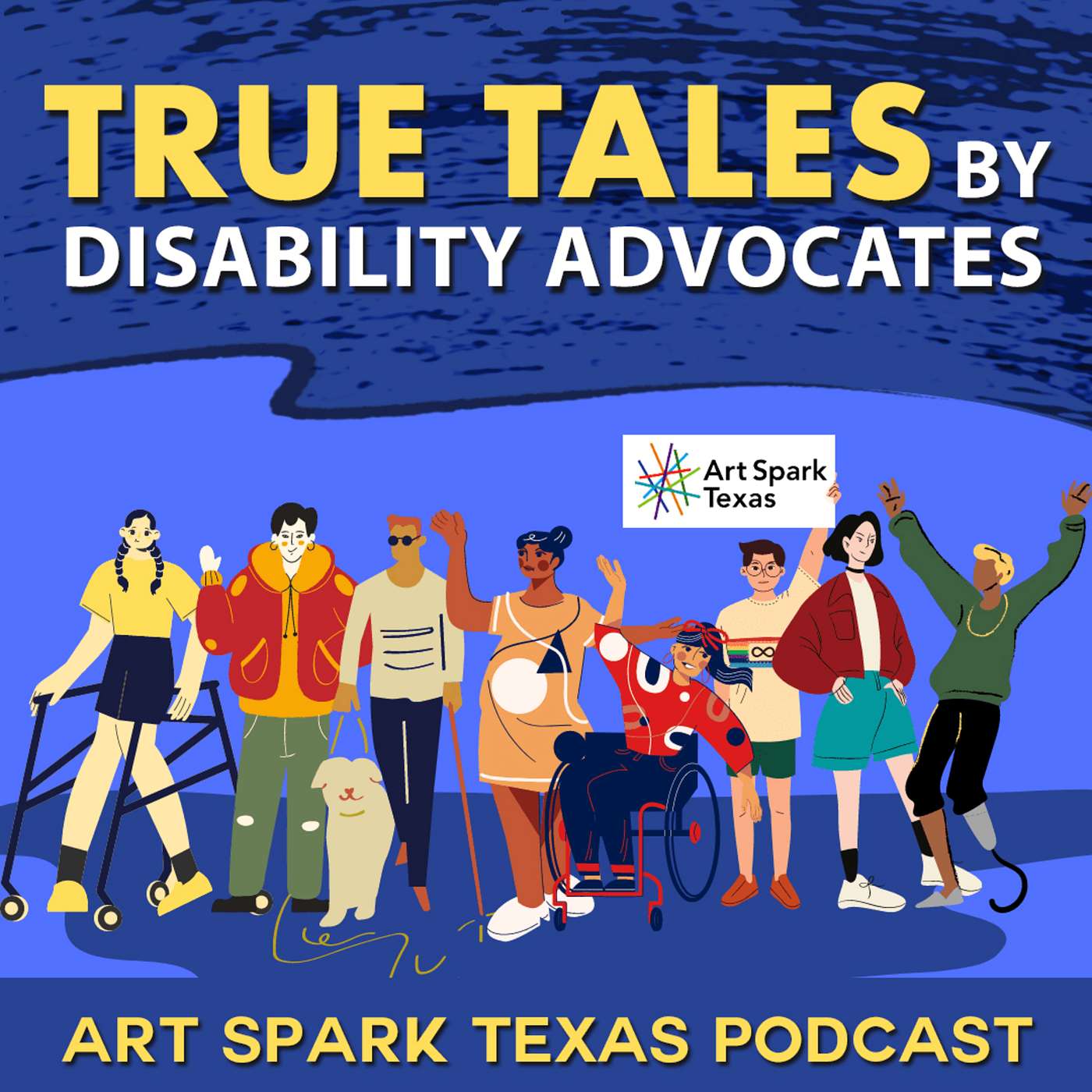

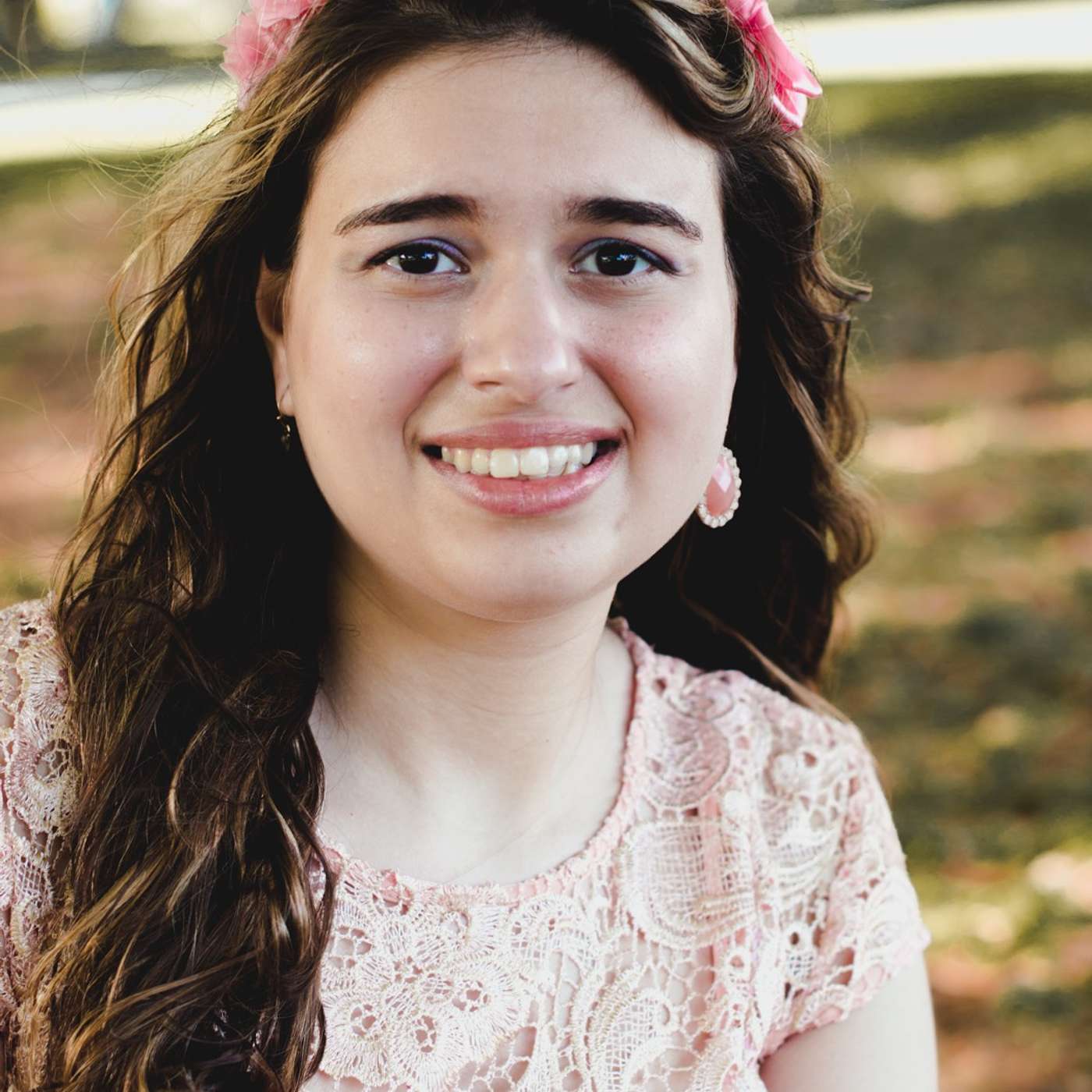
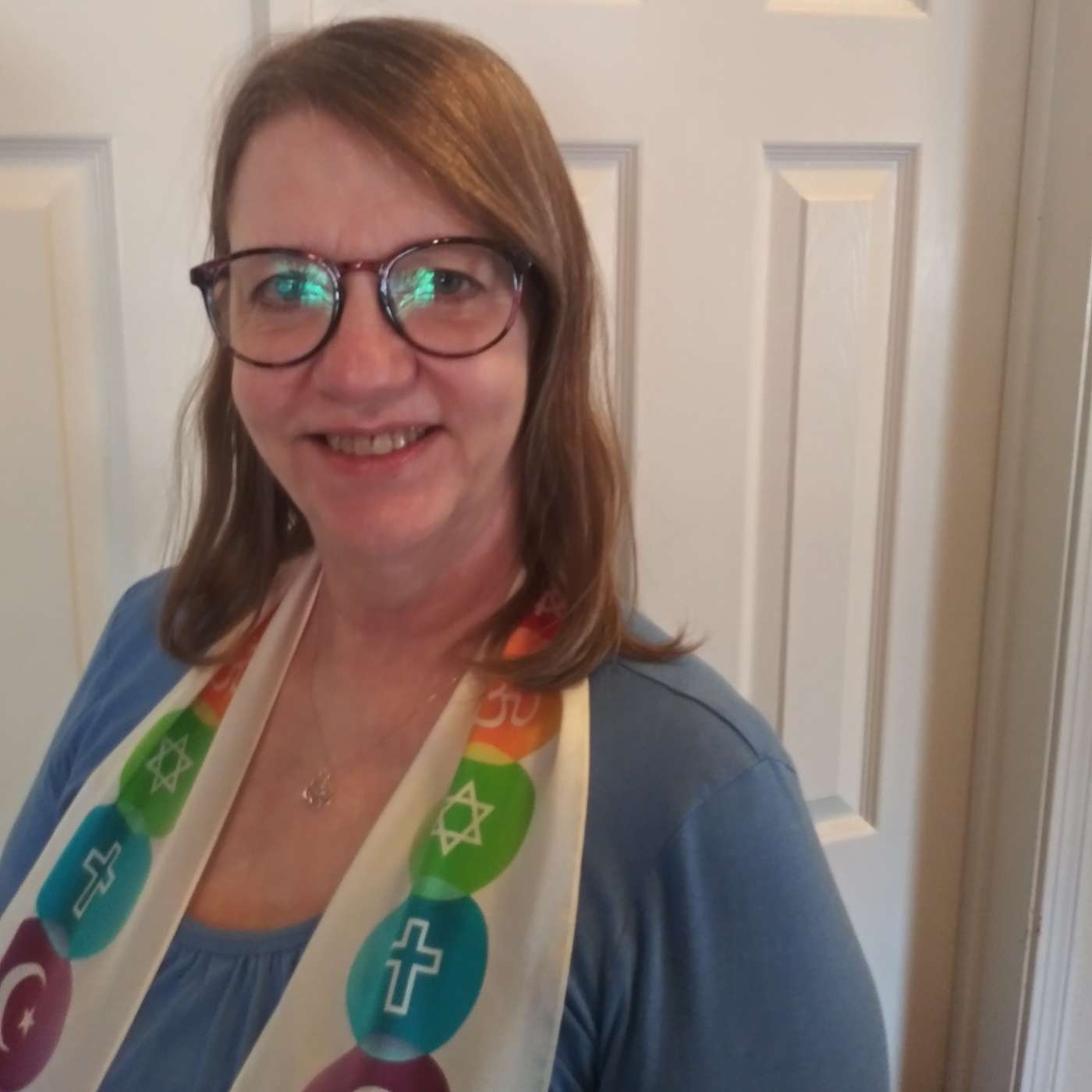

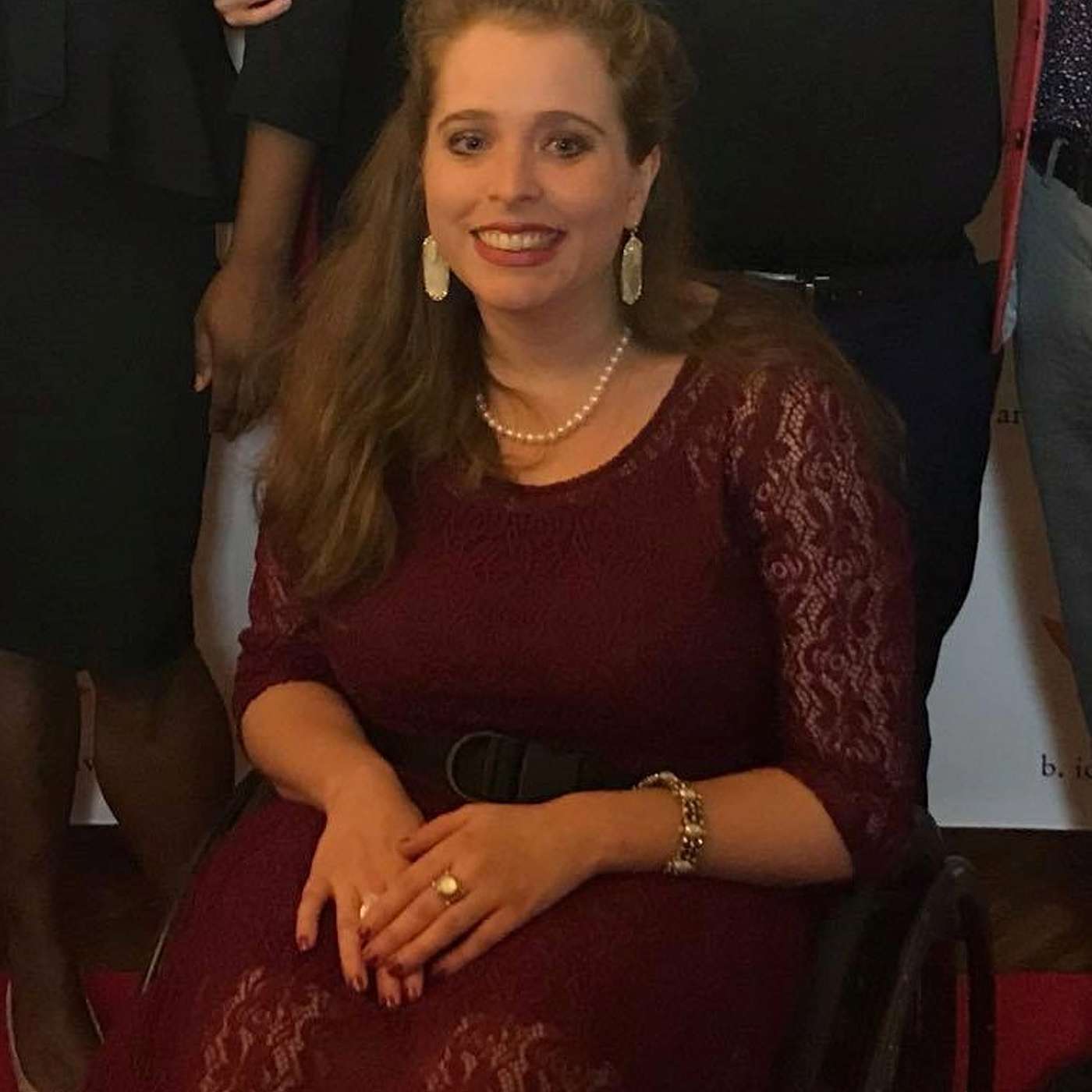


.jpg)







